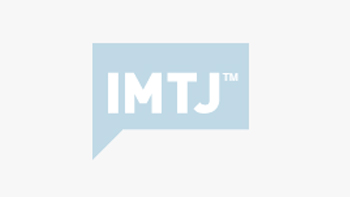The Australian Medical Association (AMA) has urged caution after an Australian medical tourism agency was launched to offer cosmetic surgery and dental packages in Phuket and elsewhere in Thailand. Steve Hambleton of AMA argues that holidays and surgery should not mix, while the cost savings should be weighed up against increased risk and a lack of recourse should something go wrong.
The Australian Medical Association (AMA) has urged caution after an Australian medical tourism agency was launched to offer cosmetic surgery and dental packages in Phuket and elsewhere in Thailand. Steve Hambleton of AMA argues that holidays and surgery should not mix, while the cost savings should be weighed up against increased risk and a lack of recourse should something go wrong, “If you go overseas, you do not have the sort of doctor registration systems that we have in Australia and we know that our training is excellent and our doctors’ standards are excellent. We would urge caution and we say to those people you are taking extra risks and do you want to take those risks with your most precious asset?” Dr Hambleton then argues that while some Australians do have hassle-free surgery overseas there have been recent cases of problematic joint replacements, followed by the prospect of costly corrective surgeries.
CosMediTour offers packages that include return flights, surgery, recuperation in a five star hotel and the potential to take a friend along for support. Run by Christyna Kruczaj and Greg Lemon, the agency takes groups from the Australian state of Queensland direct to the hospital or clinic where the surgery or dental work is done. Christyna Kruczaj says while prices vary depending on surgery type and by person, packages cost 20 to 40 per cent less than having the equivalent procedure in Australia. A breast enlargement package would cost $6,500 in Thailand while the procedure alone costs more than $10,000 in Australia,” All of our surgeons are accredited plastic surgeons and the Thai accreditation is based on the US system of plastic and reconstructive surgery. We have been researching and developing this for 16 months. The AMA’s response is predictable and a bit disappointing really. Patients only pay for an initial consult; flights and accommodation before leaving Australia and can opt out of their surgery in Thailand without financial penalty. The response we have had is immense. Many friends have gone over for surgery and they are all happy.”
But Australia too has had problems with cosmetic surgeons undertaking surgery that did not work and had problems. This is why from July 2010 all Australian doctors will be required to hold indemnity insurance under a new national registration regime. This is to ensure that patients entitled to compensation after a medical malpractice case will receive their payment. There is no similar requirement in Thailand. The extra insurance costs mean that Australian cosmetic surgeons have to chose between raising prices to pay for the insurance, and cutting into their profits; this helps explain the timing of the latest in a series of criticisms of cosmetic surgery tourism.
1 July 2010 sees the launch of the new national registration regime. The new national law has been passed in Queensland, New South Wales and Victoria. Adoption bills have been introduced into most other States and Territories and await debate. From 1 July 2010 medical practitioners across Australia will need to be registered with the Medical Board of Australia. All registered medical practitioners must have professional indemnity insurance for all aspects of their medical practice.
Australian medical professionals have been consistent in complaining about medical tourism. Their main complaint is that at a time when fewer people are paying for cosmetic surgery, and that many of those that do seek the most price-effective option; they are losing business to overseas surgeons. The Australasian College of Cosmetic Surgery has serious misgivings about the rising practice of medical tourism, but apart from vague warnings on the risks of a problem when the clinic is ten hours away by plane, can provide little hard evidence to support their expected antagonism to overseas competition.
Dentists and dental organizations are also regular complainers about competition, based on prejudice and fear of loss of business rather than any evidence that Thai standards are not equal to Australian ones. Two of Phuket’s best hospitals, Phuket International Hospital and Bangkok Hospital Phuket, are less than pleased about Australian slurs on their professionalism and counter that standards of surgery on Phuket are equal to or perhaps even better than those in Australia. A growing number of people who normally can only expect or afford care at day clinics in Australia are going to Phuket for hospital treatment. Doctors on Phuket acknowledge that after-care is more difficult once a patient has returned home, but they say this is always taken into consideration and several agencies do offer after-care services.








 ©2024 All rights reserved LaingBuisson
©2024 All rights reserved LaingBuisson 


